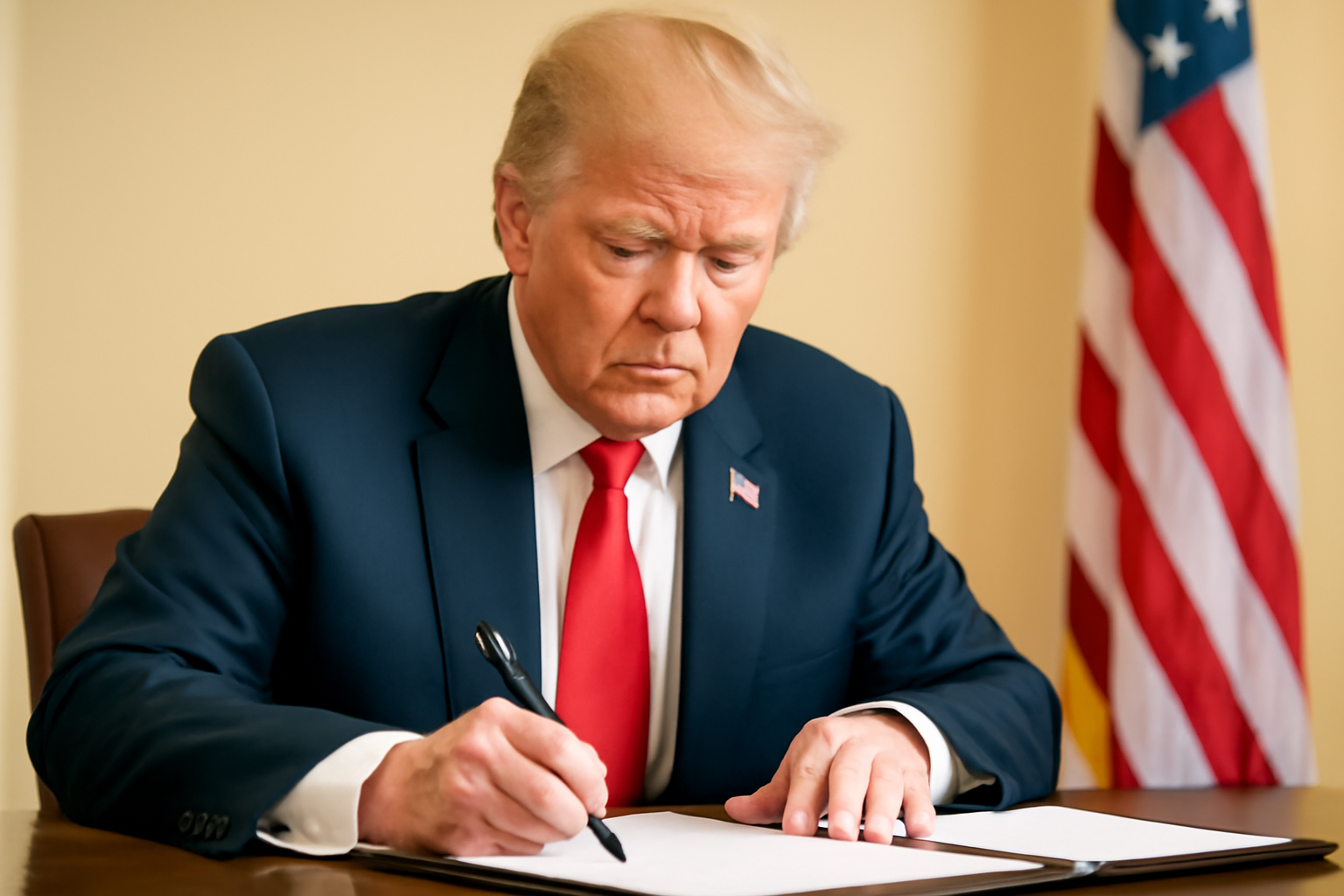
Executive Order on Federal Funding and Sports Participation
In a significant move that has stirred controversy, former President Donald Trump signed an executive order aiming to withdraw federal funding from schools that permit transgender girls and women to participate in female sports teams. The order further instructs the Department of Justice to initiate legal proceedings against educational institutions that facilitate the inclusion of trans female athletes in their sports programs.
The executive order also plans to assemble key representatives from major athletic organizations and governing bodies to develop guidelines that could potentially exclude transgender athletes. Furthermore, it threatens to prohibit cisgender U.S. athletes from engaging in international competitions that include trans athletes.
Policy Implications and Misgendering Issues
Within the text of the order, there is language that misgenders transgender female athletes by labeling them incorrectly, which advocates argue is derogatory and harmful. The order claims that the inclusion of transgender women in female sports is "unfair and dangerous to women and girls," emphasizing a need for "fair athletic opportunities."
Trump's administration contends that the order is necessary to safeguard "the safety, fairness, dignity, and truth" in women's sports, despite criticism from LGBTQ+ advocacy groups and legal experts who argue that it undermines the rights and dignity of transgender individuals.
Contrasting Approaches to Title IX
The order represents a stark contrast to the previous administration's interpretation of Title IX, which under President Joe Biden, was understood to protect transgender students from discrimination. Biden's administration had initially proposed rules to allow schools to set certain limits on transgender athletes' participation, but these measures were ultimately retracted, citing the complexity and contentious nature of the issue.
Trump's order however aligns with his past stances by reinterpreting Title IX in a way that activists say erases the existence of transgender individuals in educational settings.
Impact on Schools and Sports Bodies
The directive calls upon the Secretary of Education and the Attorney General to enforce penalties against schools that "deny female students an equal opportunity" to compete in sports due to the presence of transgender athletes. It also seeks to withdraw funding from schools that allow trans athletes to use female sports facilities.
Moreover, the order objects to current policies of sports organizations that include transgender women based on hormone levels or gender identity documentation, arguing that these policies compromise female athlete safety.
International and Domestic Reactions
The executive order also has international implications, as it urges the Secretary of State to discourage participation in trans-inclusive sports programs globally and to influence international sports committees like the International Olympic Committee to exclude transgender athletes.
Before signing the order, Trump made unsubstantiated claims about trans athletes dominating sports competitions, a narrative that has been criticized for lacking evidence and for being misleading.
Critics argue that the order fosters discrimination and harassment. Human Rights Campaign president Kelley Robinson stated, “We all want sports to be fair, students to be safe, and young people to have the opportunity to participate alongside their peers.” Robinson criticized the order for potentially exposing young athletes to increased scrutiny and discrimination based on gender expression.
Broader Implications for LGBTQ+ Rights
The order's implications extend beyond sports, with critics saying it reflects a broader agenda to roll back LGBTQ+ rights. The LGBTQ+ watchdog organization GLAAD condemned the order as "inaccurate and incoherent," asserting that it unjustly targets a marginalized group without changing the existing legal framework.
As of now, numerous states have enacted laws that restrict transgender athletes’ participation in school sports, affecting students from elementary to university levels. These laws have led to situations where cisgender athletes are subjected to gender investigations, creating an environment of suspicion and discrimination.
Ultimately, the executive order has sparked a widespread debate about the balance between protecting women's sports and ensuring inclusive policies that respect all athletes' rights. As the discussion continues, it underscores the ongoing challenges in policy-making that affect the LGBTQ+ community.
Related Posts
Triumphant Trans Woman Wins Legal Battle and Inspires Others to Stand Up for Their Rights
Breaking new ground: a landmark victory in transgender rights After battling in courtrooms and enduring endless challenges, Diana Portillo, a transgender woman, has secured a monumental victory in her decade-long fight against workplace discrimination. The result? Nearly $1 million awarded in a historic settlement. But this isn't just a win on paper—it represents a powerful precedent in combati [...]
Pride Month in Latin America: Protests and Demands for Equality
**Celebrating Pride and advocating LGBTQ+ rights in Latin America** Pride Month in Latin America was a lively mix where celebration met activism. Communities united, not just throwing a party but making a stand—demanding equality and pushing governments toward better protection and rights recognition. Throughout Latin America, pride events erupted in marches and cultural displays, each with a c [...]
Transgender Erasure Actions Implemented by National Park Service
```html Trump administration's impact on national park service and transgender recognition The Trump administration made notable moves in undermining transgender representation, which included directing agencies like National Park Service not include "T" and "Q" when they refered “LGBTQ” in any official communication. This move seems part a broader plan by this administration aimed at reducin [...]